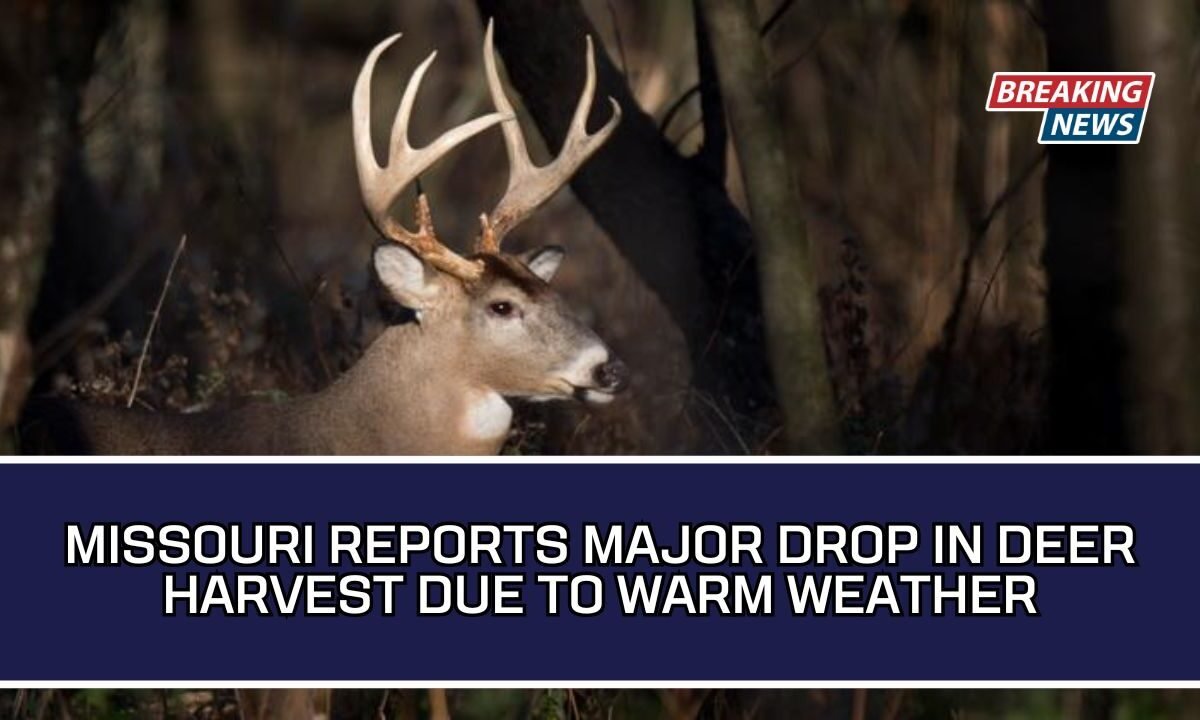Missouri’s 2025 firearm deer season started with unexpected challenges, and hunters across the state quickly realised something was wrong.
Instead of the usual excitement and strong harvest numbers, this opening weekend became one of the slowest in recent years. The main problem was not the hunters at all—it was the near-record-high temperatures that affected how deer moved and behaved.
This article explains why the heat slowed down deer activity, how harvest numbers compare with past years, and what conservation experts think about the season ahead.
Opening Weekend: A Slow Start Across Missouri
Every year, thousands of hunters prepare for the opening day of firearm season. It is a long-standing tradition and usually brings high harvest totals. However, this year did not go as expected.
According to the Missouri Department of Conservation, hunters harvested 70,173 deer during Saturday and Sunday combined. While this number is slightly above last year’s total, it is still far lower than the 90,253 deer harvested during the 2023 opening weekend.
The biggest drop happened on Saturday. Harvest numbers were 26% below the previous five-year average, making it one of the weakest opening days in recent history.
Jason Isabelle, the Cervid Program Supervisor, confirmed that the warm weather was the main reason behind the poor numbers.
How Heat Affected Deer Movement
On opening day, temperatures reached nearly 70 degrees, which is around 20 degrees warmer than the normal mid-November temperature in Missouri. For deer, such warm weather is uncomfortable.
Deer usually move more during cooler conditions, especially in November. When temperatures rise too high:
• Deer become less active
• They stay hidden in shady, cooler areas
• They avoid moving during daylight
• They do not travel long distances
Because of this, hunters saw fewer deer, had fewer shooting chances, and struggled to achieve typical harvest totals.
Isabelle mentioned that the heat clearly reduced deer movement and made it difficult for hunters to spot animals on opening day.
Did Hunters Stay Home?
Despite the heat, most hunters still showed up because opening day is an important tradition in Missouri. According to conservation officials, turnout was not the issue.
But the warm weather changed how hunters behaved:
• Many became more careful about which deer to harvest
• Some avoided taking late-day shots
• Others worried about deer meat spoiling quickly in the high temperatures
Warm weather speeds up meat spoilage, so hunters had to process the harvest faster than usual. This made some people more selective about pulling the trigger.
Better Weather on Sunday Helped Hunters
Sunday brought cooler temperatures that were more typical for November. With the weather improving, deer activity also increased.
Hunters told Isabelle that deer movement was noticeably better on Sunday. The harvest numbers for Sunday came close to the usual average for the first Sunday of deer season.
This Is Not the First Time Weather Has Affected the Season
Missouri has struggled with warm-weather openings before. In 2024, hunters not only faced high temperatures but also had to deal with a heavy acorn crop. Because deer had plenty of natural food that year, they moved less and were harder to find.
Comparison of Deer Harvest Numbers
Below is a simple comparison of harvest numbers and conditions:
| Year | Opening Weekend Harvest | Key Conditions |
|---|---|---|
| 2023 | 90,253 deer | Normal temperatures |
| 2024 | Below average | Warm weather + heavy acorn crop |
| 2025 | 70,173 deer | Near-record warm temperatures |
Missouri’s 2025 deer season opening shows how strongly weather conditions can affect hunting success. Even though the turnout remained strong, the unusually warm temperatures made deer less active and harder to spot.
This led to a major drop in harvest numbers, especially on Saturday. As weather patterns continue to shift, hunters and conservation experts may need to adjust their expectations and strategies for future seasons to deal with unpredictable conditions.




